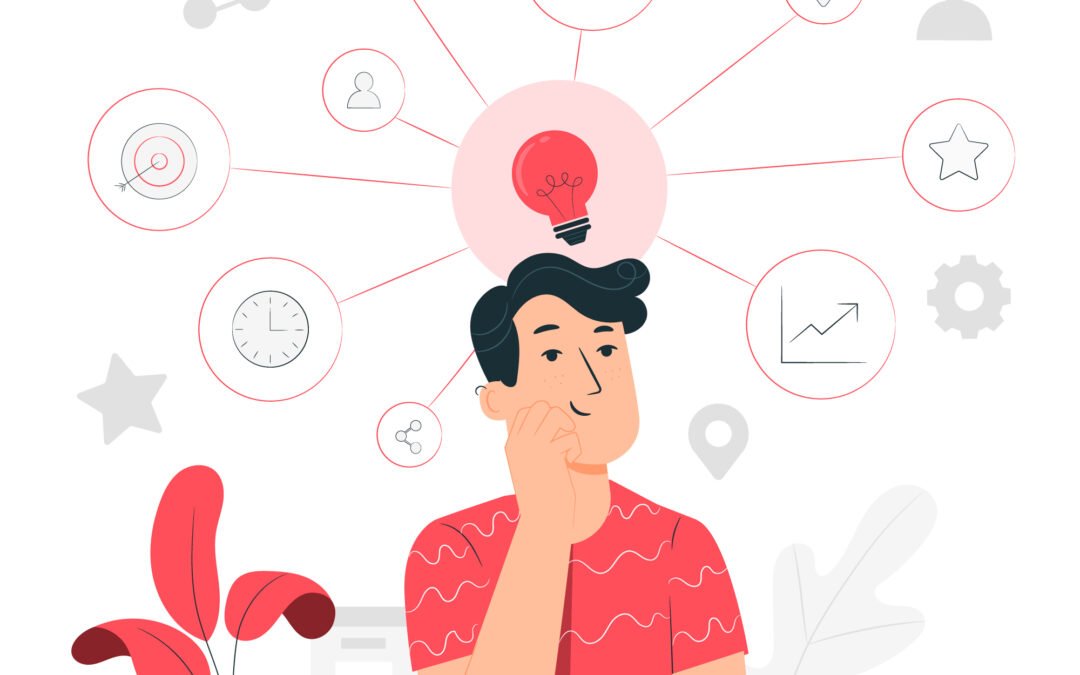Tips for Improving Communication Skills: Unlocking Effective and Impactful Communication
Table of Contents
Introduction
Effective communication is a fundamental skill that plays a vital role in personal and professional success. Whether in the workplace, social settings, or relationships, strong communication skills are essential for conveying ideas, building relationships, and achieving desired outcomes. In this article, we will explore valuable tips and strategies to improve your communication skills and become a more confident and persuasive communicator.
Tips for Improving Communication Skills: Tip 1. Active Listening
Active listening is the foundation of effective communication. It involves fully engaging with the speaker, understanding their message, and responding appropriately. To improve your active listening skills:
– Maintain eye contact and give your full attention.
– Avoid interrupting or formulating your response before the speaker finishes.
– Show empathy and understanding through non-verbal cues, such as nodding or mirroring body language.
– Ask clarifying questions to ensure you grasp the speaker’s message accurately.
Tips for Improving Communication Skills: Tip 2. Be Clear and Concise
Clarity and conciseness are key elements of effective communication. To enhance clarity:
– Organize your thoughts before speaking or writing.
– Use simple and straightforward language, avoiding jargon or technical terms when communicating with non-experts.
– Break down complex information into smaller, digestible chunks.
– Be mindful of your tone and body language, ensuring they align with your message.
Tips for Improving Communication Skills: Tip 3. Practice Empathy
Empathy is the ability to understand and share the feelings of others. It is a powerful skill that fosters connection and effective communication. To cultivate empathy:
– Put yourself in the other person’s shoes and try to understand their perspective.
– Listen actively and show genuine interest in their thoughts and emotions.
– Validate their feelings and respond with empathy and compassion.
– Avoid judgment and be open to different viewpoints.
Tips for Improving Communication Skills: Tip 4. Non-Verbal Communication
Non-verbal communication, including body language, facial expressions, and gestures, can significantly impact how your message is received. To improve your non-verbal communication:
– Maintain an open posture, facing the person you are communicating with.
– Use appropriate hand gestures to emphasize key points.
– Smile genuinely to convey warmth and approachability.
– Pay attention to others’ non-verbal cues and adjust your communication accordingly.
Tips for Improving Communication Skills: Tip 5. Be Mindful of Your Tone
The tone of your voice can influence the interpretation of your message. To ensure effective communication:
– Speak with a calm and confident tone.
– Avoid a condescending or aggressive tone, as it can create barriers and hinder understanding.
– Use appropriate intonation to convey emotions or emphasize important points.
– Pay attention to your pace and rhythm, ensuring it is suitable for the context.
Tips for Improving Communication Skills: Tip 6. Seek Feedback
Feedback is a valuable tool for improving communication skills. Actively seek feedback from trusted individuals to gain insights into your communication style and areas for improvement. Consider the following approaches:
– Request specific feedback on your strengths and areas that need development.
– Reflect on the feedback received and identify patterns or recurring themes.
– Actively work on implementing the suggested improvements.
Tips for Improving Communication Skills: Tip 7. Practice Empathetic Assertiveness
Assertiveness is essential for expressing your thoughts, needs, and boundaries effectively. Combining assertiveness with empathy allows for respectful and constructive communication. To practice empathetic assertiveness:
– Clearly state your thoughts, opinions, or requests.
– Use “I” statements to express your feelings or concerns without blaming others.
– Consider the impact of your words on others and adjust your approach accordingly.
– Be receptive to others’ perspectives and find common ground.
Tips for Improving Communication Skills: Tip 8. Use Visual Aids and Storytelling
Visual aids and storytelling can enhance the impact of your message, making it more engaging and memorable. Consider the following techniques:
– Utilize visual aids such as charts, diagrams, or slides when presenting complex information.
– Incorporate storytelling to make your message relatable and capture attention.
– Use vivid and descriptive language to paint a picture and evoke emotions.
Tips for Improving Communication Skills: Tip 9. Seek Continuous Learning Opportunities
Improving communication skills is an ongoing process. Embrace opportunities for continuous learning and development:
– Attend workshops or seminars focused on communication skills.
– Read books or articles on effective communication techniques.
– Engage in public speaking or presentation skills training.
– Seek mentorship or coaching from experienced communicators.
Tips for Improving Communication Skills: Tip 10. Practice, Practice, Practice
Effective communication is a skill that improves with practice. Actively seek opportunities to apply your communication skills in various settings:
– Engage in group discussions or debates to practice articulating your thoughts.
– Volunteer for public speaking engagements to build confidence.
– Engage in role-playing scenarios to simulate challenging communication situations.
Conclusion
Improving communication skills is a journey that requires dedication and practice. By implementing the tips mentioned above, such as active listening, clarity, empathy, non-verbal communication, seeking feedback, and continuous learning, you can enhance your communication skills and become a more influential and effective communicator. Remember, effective communication has the power to transform relationships, drive collaboration, and achieve desired outcomes in both personal and professional contexts.
How can Bodhih Training help?
Bodhih Training is a renowned training organization that specializes in communication skills development. Their expertise in this area can greatly assist individuals in improving their communication skills. Here’s how Bodhih Training can help:
1. Customized Communication Training: Bodhih Training offers customized communication training programs tailored to the specific needs of individuals or organizations. These programs focus on enhancing various aspects of communication, such as active listening, effective speaking, non-verbal communication, and interpersonal skills.
2. Experienced Trainers: Bodhih Training has a team of experienced trainers who are experts in the field of communication skills. These trainers bring a wealth of knowledge and practical insights, ensuring that participants receive high-quality training that is relevant and impactful.
3. Practical and Interactive Learning: Bodhih Training emphasizes practical and interactive learning methodologies. Their training programs involve activities, exercises, and role-plays that allow participants to practice and apply their communication skills in a safe and supportive environment. This approach helps individuals gain confidence and competence in their communication abilities.
4. Focus on Individual Growth: Bodhih Training recognizes that each individual has unique communication strengths and areas for improvement. Their training programs focus on identifying and addressing specific challenges faced by participants. By providing personalized attention and feedback, Bodhih Training helps individuals develop their communication skills effectively.
5. Holistic Approach: Bodhih Training takes a holistic approach to communication skills development. They cover various aspects of communication, including verbal, non-verbal, written, and digital communication. This comprehensive approach ensures that individuals develop a well-rounded skill set that can be applied in different communication contexts.
6. Continuous Support: Bodhih Training goes beyond the training sessions by providing continuous support to participants. They offer post-training resources, such as reference materials, toolkits, and online learning platforms, to help individuals reinforce their learning and continue their development journey even after the training program concludes.
7. Real-World Application: Bodhih Training emphasizes the practical application of communication skills in real-world scenarios. Their training programs include case studies, simulations, and exercises that simulate workplace situations. This approach enables participants to understand how to apply their communication skills effectively in their day-to-day professional interactions.
Conclusion
Improving communication skills is essential for personal and professional growth. Bodhih Training’s expertise in communication skills development can be immensely beneficial in honing your abilities. Through their customized training programs, experienced trainers, practical learning methodologies, and holistic approach, Bodhih Training can help individuals enhance their communication skills and become effective communicators in various contexts. Invest in your communication skills with Bodhih Training and unlock your full potential as a confident and impactful communicator.
One month plan to implement from Tips for Improving Communication Skills
Implementing a one-month plan to improve your communication skills can significantly enhance your abilities in a relatively short time. Here’s a suggested plan based on the tips provided in the article “Tips for Improving Communication Skills”:
Week 1: Self-Assessment and Active Listening
– Reflect on your current communication strengths and areas for improvement.
– Practice active listening skills by engaging in conversations and consciously focusing on fully understanding the speaker.
– Take notes of any challenges or areas where you can improve your listening skills.
Week 2: Clarity and Conciseness
– Practice organizing your thoughts before communicating, both in written and verbal form.
– Use clear and concise language to express your ideas, avoiding jargon or unnecessary complexity.
– Seek feedback from colleagues or friends on the clarity of your messages and make necessary adjustments.
Week 3: Non-Verbal Communication and Empathy
– Pay attention to your non-verbal cues, such as body language, facial expressions, and gestures.
– Practice maintaining an open posture, using appropriate eye contact, and mirroring positive body language.
– Develop empathy by actively putting yourself in others’ shoes and considering their perspectives during conversations.
Week 4: Assertiveness and Seeking Feedback
– Practice assertiveness by expressing your thoughts and opinions respectfully and directly.
– Use “I” statements to convey your feelings and needs while maintaining a considerate approach.
– Seek feedback from trusted individuals on your communication style and actively implement suggested improvements.
Throughout the Month:
– Engage in continuous learning by reading books or articles on communication skills.
– Take advantage of any training opportunities, workshops, or webinars related to communication skills development.
– Engage in role-playing exercises or practice scenarios to further refine your communication skills.
– Seek out opportunities to apply your improved communication skills in real-life situations, such as team meetings or presentations.
Remember, consistent practice and reflection are key to improving your communication skills. Embrace each week’s focus and actively incorporate the suggested tips into your daily interactions. Monitor your progress, celebrate your successes, and seek support whenever needed. With dedication and perseverance, you will witness significant growth in your communication skills over the course of one month.


Recent Comments